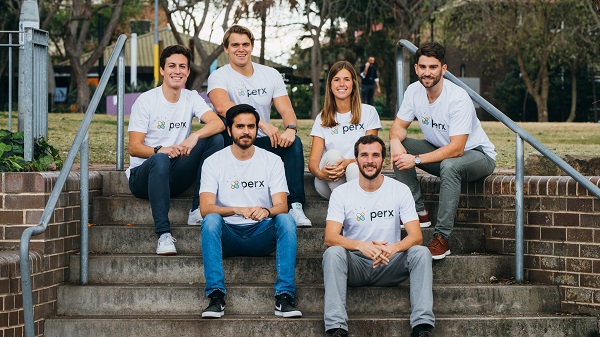If you’ve ever stopped taking medication or failed to keep up with home rehab exercises, you’re not alone. Half of people with chronic conditions in developed countries deviate from prescribed treatments.
But this comes at a massive cost. Adults who don’t stick to blood pressure, cholesterol and depression medication plans alone cost the Australian health care system an estimated $10.4 billion each year – not to mention the impacts on individual health and quality of life. What would it take to nudge adherence rates upwards?

Hugo Rourke pondered this question in 2016. A consultant at the time, he advised companies on consumer engagement, loyalty and promotions. But he also noticed people – including himself – who, for varying reasons, struggled to consistently take medication or keep up an exercise regime. There must be a way to harness proven consumer behavioural techniques to help people better manage their health and form habits, he thought.
So Rourke enlisted his mate Scott Taylor, who has a background in behavioural economics. The pair founded Perx Health and created Perx – an app designed to motivate patients with chronic conditions to follow their treatment plans. It does this using a tailored combination of ‘real-world’ rewards such as movie tickets and gift cards, gamification, education and community support.
“We’re all wired slightly differently, so our challenge was to build an adaptive solution which finds the correct mix of different tactics to motivate each person, precise to the individual user,” says Rourke, who is now co-CEO with a growing team of 15.
“If we can make managing your health exciting and positively framed, that might change the way people manage self-care behaviours.”
And change patient behaviour they have. In November 2019, Perx Health presented data at the European Symposium on Patient Care, Compliance and Persistence showing that Perx users had a verified adherence rate of 88% over six months.
That same year, the start-up received a Medical Devices Fund grant awarded by NSW Health to shore up their product and cement its clinical effectiveness.
Of the 35 technologies so far backed by the Medical Devices Fund, Perx is only the second pure software product. Most are traditional medical devices, tests and therapies.
“And I think that’s the challenge for products like ours – to not just be a digital gimmick, but to stand up and put ourselves to the test clinically, to prove our effectiveness just like a medical device or a new drug therapy would have to,” Rourke says.
Since Perx Health received the grant in August 2019, their product has grown from a platform that relied on photo-verified and self-reported data into a device-integrated one, which can incorporate data generated by devices and sensors such as pedometers, glucometers and blood pressure cuffs.
The grant will also help verify the effectiveness of the newly device-integrated Perx platform. Wheels are already in motion to work with a research partner and validate the app clinically with a long-term trial, Rourke says. How the device-integrated app performs in actual patient cohorts will be rigorously explored too.
“We’ll be testing the evolved product with our enterprise customers to show that not only does it work in a research setting, but also that it works in a real-world context,” he says.
“And that’s what we’re really excited about over the next two years – to show a demonstrable health impact and that our digital therapeutic is therefore worthy of ongoing funding from the likes of NSW Health.”
By Bel Smith
Updated 4 years ago
